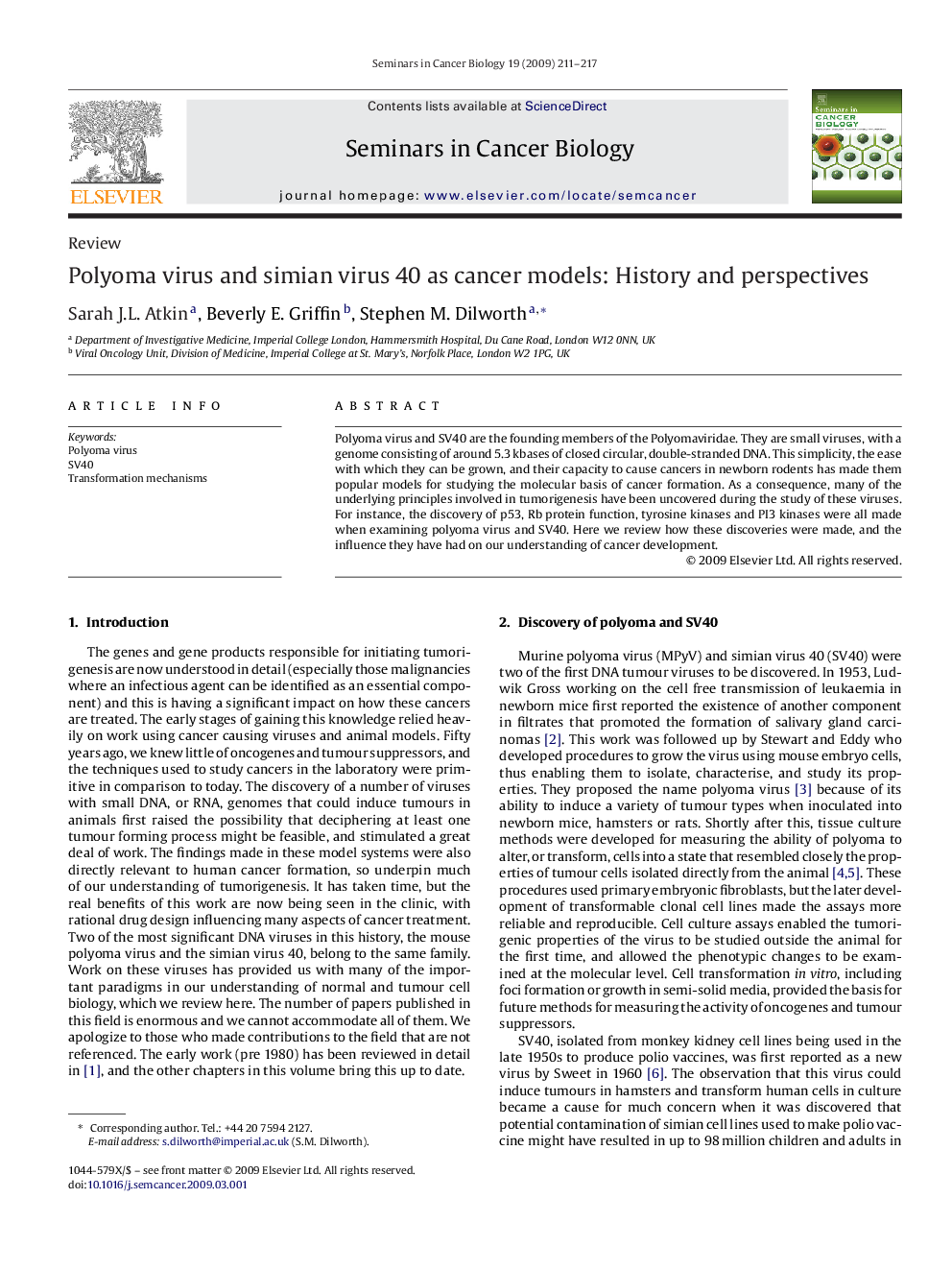| Article ID | Journal | Published Year | Pages | File Type |
|---|---|---|---|---|
| 2024025 | Seminars in Cancer Biology | 2009 | 7 Pages |
Polyoma virus and SV40 are the founding members of the Polyomaviridae. They are small viruses, with a genome consisting of around 5.3 kbases of closed circular, double-stranded DNA. This simplicity, the ease with which they can be grown, and their capacity to cause cancers in newborn rodents has made them popular models for studying the molecular basis of cancer formation. As a consequence, many of the underlying principles involved in tumorigenesis have been uncovered during the study of these viruses. For instance, the discovery of p53, Rb protein function, tyrosine kinases and PI3 kinases were all made when examining polyoma virus and SV40. Here we review how these discoveries were made, and the influence they have had on our understanding of cancer development.
